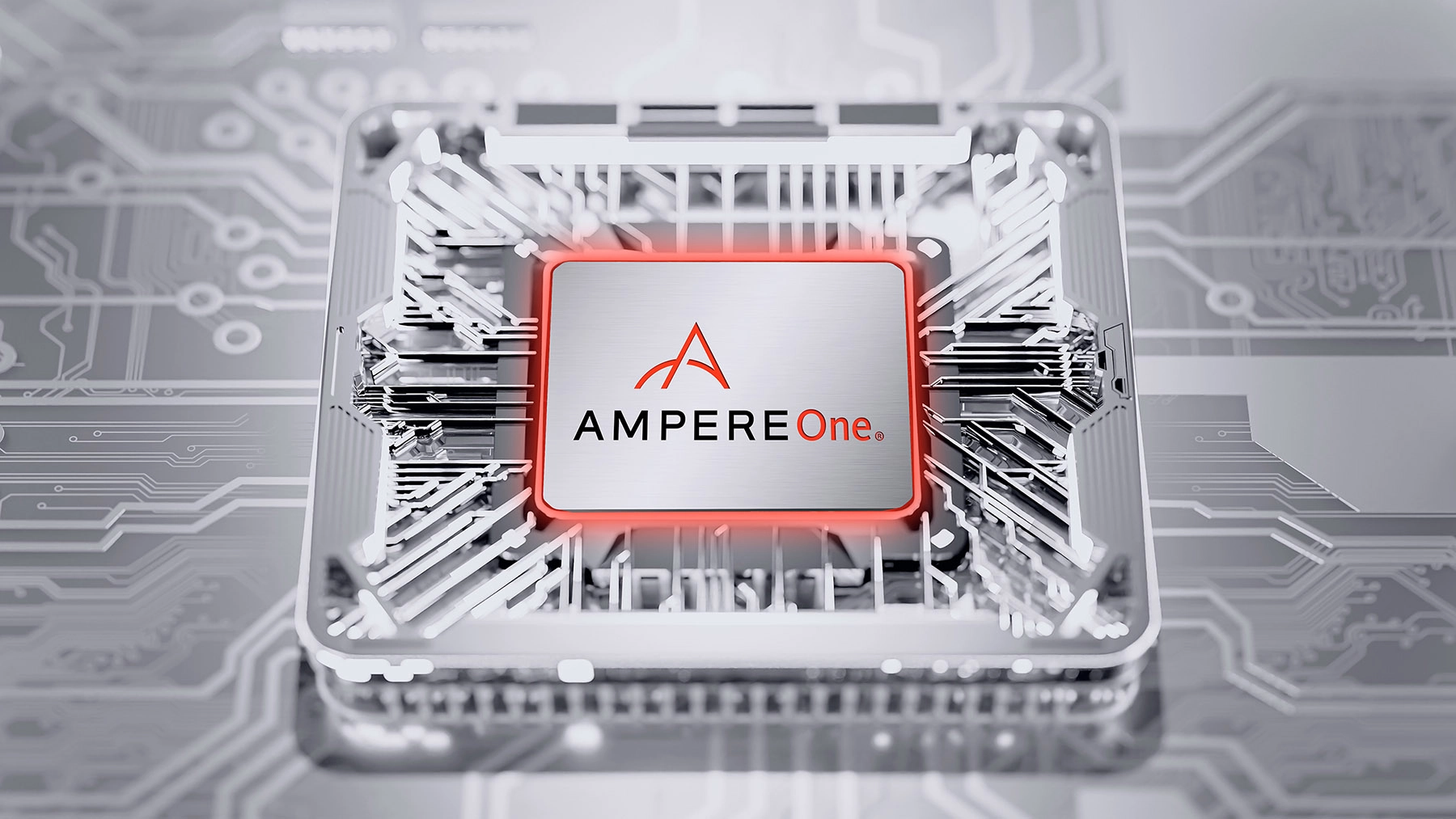
Ampere Computing has announced plans for a faster, more efficient 256-core server processor to help address soaring data center power demands. The startup chipmaker is also constructing a new joint solution that unites Ampere’s Arm-based CPUs with Qualcomm’s AI inferencing chip.
Ampere representatives revealed its upcoming 256-core AmpereOne chip – set to be available next year – will provide 40% better performance than any CPU currently available, whilst maintaining the same amount of power usage as its 192-core AmpereOne chip that was launched last year.
AmpereOne is a custom, Arm-compatible chip visionary crafted to meet high-performance requisites whilst maintaining power-efficiency. This makes the processor perfect not just for cloud-native, general-purpose applications such as databases, web servers, and media delivery, but also for AI inferencing. This was stated by Jeff Wittich, the Chief Product Officer at Ampere.
Aiming to enhance AI inferencing performance, Ampere announced its development of a joint solution that features its CPUs integrated with Qualcomm Cloud AI 100 Ultra accelerators for AI inferencing. A server powered by both chips will soon enter the market, courtesy of Supermicro, Wittich informed.
“Data centers are increasingly consuming more power, and AI has been a significant catalyst for this,” he expounded to Data Center Knowledge. “We aim to step in and provide a more efficient solution, whether it’s dealing with the most colossal models in partnership with Qualcomm or smaller models operating solely on CPUs.”
Since launching the company in 2018, Ampere CEO Renee James – who was previously Intel’s president – has positioned Ampere as an Arm-based chip alternative to AMD and Intel in the server processor market.
Its cloud provider customers include Oracle Cloud, Google Cloud, Equinix Metal, and Tencent Cloud. The startup is also hoping to make inroads in enterprise on-premises data centers with Ampere-powered servers from Hewlett Packard Enterprise, Supermicro, and other hardware makers.
While Ampere had a lot of early success with the major hyperscalers, a number of its customers, including Google Cloud, Microsoft Azure, and Alibaba Cloud, have either built or are planning to build their own in-house Arm chips. This could affect Ampere’s business, said Patrick Moorhead, founder and chief analyst at Moor Insights & Strategy.
“Ampere was a first mover with Arm in the hyperscale data centers and had early success. It’s unclear how Google’s Axion and Microsoft’s Cobalt [Arm CPUs] will impact the business there, but it can’t be a positive,” Moorhead said in an interview with Data Center Knowledge.
Although Ampere is not yet a major participant in the CPU market, it has been producing competitive products, according to Jim McGregor, the founder and principal analyst at Tirias Research.
“Their argument is very compelling. They continue to innovate with each new generation, but it’s important to recognize that their competitors are not idle,” McGregor stated to DCK. “Also significant is the long history of x86 software support and the continued prevalence of x86.”
While Arm CPUs have managed to capture only 9% of the market, the x86 chips maintain their domination with Intel holding 61% and AMD at 27% of the market share in 2023, as cited by Omdia. Arm CPUs have also been made by other firms, including Amazon Web Services and Nvidia.
LowEndBox is a go-to resource for those seeking budget-friendly hosting solutions. This editorial focuses on syndicated news articles, delivering timely information and insights about web hosting, technology, and internet services that cater specifically to the LowEndBox community. With a wide range of topics covered, it serves as a comprehensive source of up-to-date content, helping users stay informed about the rapidly changing landscape of affordable hosting solutions.
























Leave a Reply